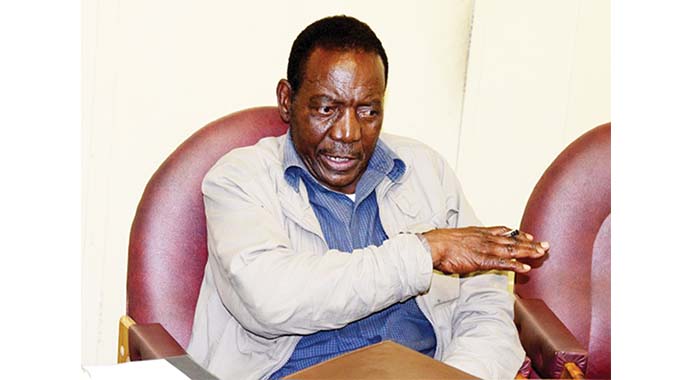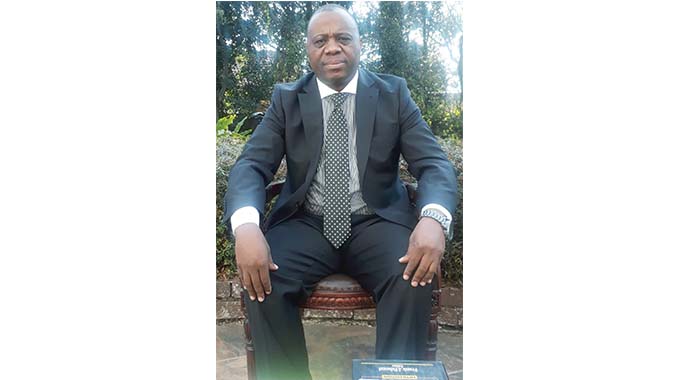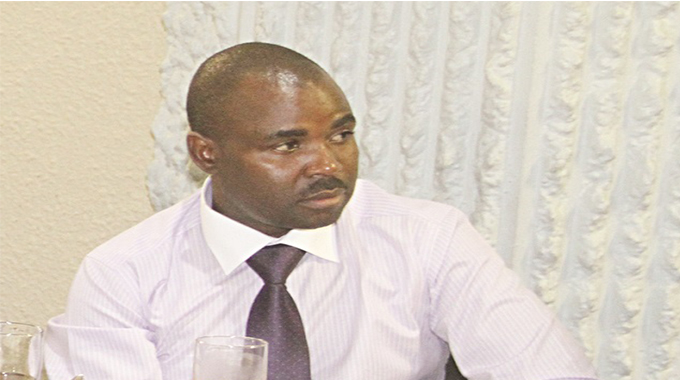Hero Nleya’s death puts Masendu village on the map

Nqobile Tshili, Chronicle Reporter
Following the declaration of Cde Stanley Nleya (72) as a national hero, his burial programme included that his body be taken to his rural home in Masendu village in Bulilima District, Matabeleland South, as per the norm with other national heroes.
Cde Nleya was declared a national hero on June 19 following his death on June 16.
In line with his burial programme his body left Bulawayo on a Monday at about 2:30PM from One Brigade Barracks for the sendoff service in his rural home aboard a Zimbabwe National Army (ZNA) helicopter.
Cde Nleya’s body arrived in Masendu Village just after 3PM and was received by Matabeleland South Provincial Affairs Minister Abednego Ncube.
While the body was flown to Masendu, a Chronicle news crew had to drive to the village, with another team remaining in Bulawayo to give the nation updates regarding the burial proceedings.
I was part of the two-member crew that travelled to the rural home, leaving Bulawayo at 10AM that Monday. The distance from Bulawayo to Masendu Village is roughly 170km journey with 100km being the tarred Bulawayo-Plumtree Road. It took us hours to reach the village due to the dilapidated state of the road. Members of the public always complain over the poor state of major roads but the situation is worse with trunk roads as some of them are nothing short of gullies.
The road to Masendu is also similar to such roads as motorists in some instances have to use pathways as they are more trafficable than the roads.
While the road infrastructure is in a bad shape, the same cannot be said about the homesteads in villages leading to Masendu. Bulilima district is home to scores of Zimbabweans based in the neighbouring South Africa and Botswana. The diaspora-based citizens have indeed brought development to the district as witnessed by most of the homesteads built in the villages.
Most of them have homesteads built following modern structures and in some instances, owners go the extra mile of erecting precast walls, as opposed to the ordinary fence as is done in most communities.
Apart from the modern homes, another thing that struck the crew was the high number of women who cycle in the district.
The Chronicle news crew arrived in Masendu just a few minutes after Cde Nleya’s body had landed at his home village.
ZNA members were on the ground to give one of the Zimbabwe People Revolutionary Army (Zipra) commanders a befitting sendoff, as it is done with all national heroes. The body was placed on a Doves Funeral Service hearse which took it to the family’s modest homestead.
The arrival of the body attracted scores of villagers including children, some of them publicly confirming that they had never seen a helicopter at close range before.
Cde Nleya’s family had requested that the body should lie in state at the family’s homestead, so that they could conduct traditional rituals in line with Kalanga culture.
A State-led funeral service was held at about 4PM as Government officials commended President Mnangagwa for conferring Cde Nleya, a national hero status.
The Masendu community largely consists of Kalanga-speaking people, as observed by the family spokesperson and cousin to the deceased Mr Uyapo Sibanda who gave his speech in that language. Since we understood his speech only in part, we requested that he translate it to isiNdebele.
“I don’t speak Ndebele, but can speak English,” Mr Sibanda said.
He continued: “Stanley was my cousin. We are happy that he was declared a national hero. It seems those who worked with him knew him better than us. He left the country in 1968, he was in Form 3 but did not proceed to Form Four as he joined the liberation struggle. I was 10 years by then. I would ask where my brother was and be told that he went to the bush, years later I then understood that he joined the liberation struggle.”
He said after the war, Cde Nleya did not reconnect with his roots.
“He loved the city life. He visited the village. But we appreciate that he was declared a national hero, his comrades knew him better than us in the family. If there is a biography to be written about him, a book to be written about him, I will gladly buy the book so that I can learn more about my brother,” he said.
Mr Sibanda is very fluent in English just like the national hero.
Although some of his relatives did not have close relations with the gallant son, other community members have vivid memories of him and his contributions.
A war veteran who only identified himself as Cde Moyo said he knew Cde Nleya very well. “I’m a product of his training,” said the light-skinned Cde Moyo, as he showed the news crew scars on his elbows.
“This is Stanley. He did this to me when he made us crawl during training. His training saved my life. There was a time when the enemy wanted to capture me, thinking that I was Russian. I was a sniper, a good sniper because of him. He was a true soldier, who wanted the best from us. I’m alive today because of his teachings.”
Cde Moyo was carrying a book detailing Zipra operations, showing it to other villagers.
Masendu central senior village head Mr Sam Ndlovu said Cde Nleya played a pivotal role in influencing youths then to join the liberation struggle.
Mr Ndlovu was among the people who were trained by the national hero.
“When he joined the liberation struggle in 1968, news spread across the village that he had joined the war. It was him and the late Cornelius Dube whose pseudonym was Alfred Mlilo who joined the war from our community. As young people, their participation in the liberation struggle influenced us a lot to join the war as well. Some of us got lucky that when we joined the war, he also trained us. Myself in particular, I had known him before joining the war as we are related. Even during the war, he was very intelligent,” said Mr Ndlovu.
He said as a pioneer liberation fighter from Masendu, his declaration as a national hero was befitting.
“This puts our community on the map. We have always heard of national heroes being declared but none of them have emerged from our village. We all are aware of Cde Nleya’s contributions and we feel this is a befitting honour to him. His contributions to the liberation of the country are too significant to ignore,” he said.
At about 6PM, the family conducted traditional Kalanga rituals where they sang while drum beating as they made their way to the graveside.
At the site, they started speaking in hushed tones, seemingly speaking to their ancestors, telling them of Cde Nleya’s death.
They also told the spirits, which seemed to have possessed one of the women that Cde Nleya, had been declared a national hero and that he would be buried with his friends.
This was a fascinating experience for me to observe that some communities still uphold their cultural values at a time when Christianity has swept across the country and the continent at large.
Conducting cultural rituals did not also bar holding of Christian funeral service as pastors from various denominations preached to the mourners during the night vigil before the family held another grave site rite in the morning.
Cde Nleya was a hero of unquestionable credentials but in his village, most villagers have little knowledge of him. They, however, came in numbers to pay their last respects to the gallant son of the soil.
The community that hugely depends on diaspora remittances is feeling the Covid-19 pandemic induced economic disruptions as they no longer get groceries sent to them by their South Africa or Botswana based relatives due to closed borders.
Local shops worsen the situation as they are not accepting local currency selling products in South African rand only.
Masendu villagers are also facing serious water challenges owing to climate change induced poor rainfalls in the 2019/20 rainy season as water bodies have started drying up.
The community also fears losing their livestock as they did last year due to poor grazing in the previous rainy season.
The water situation calls for Government swift intervention so that communities’ livelihoods can be salvaged. — @nqotshili











Comments